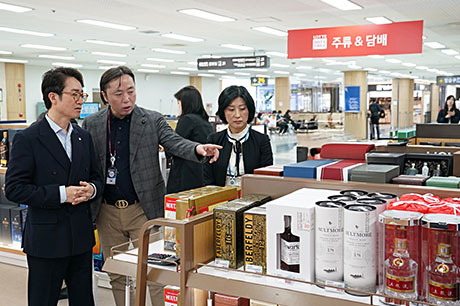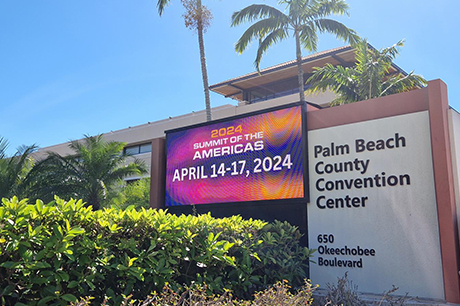Nestlé introduces KitKat using cocoa from its Income Accelerator Program
By Benedict Evans |

Nestlé says its new ‘Breaks for Good’ KitKat aims to raise awareness about the sustainability of the cocoa used in its chocolates.
Nestlé International Travel Retail (Nestlé ITR) is set to launch the first KitKat made with cocoa sourced from beans grown by farmer families engaged in its Income Accelerator Program (IAP).
The IAP primarily serves to fuel Nestlé ITR’s supply route to European travel retail, and the multinational food and drink conglomerate says new products are expected to be rolled out over the coming months, with their launch supported by a ‘Breaks for Good’ advertising campaign.
Nestlé says its new ‘Breaks for Good’ KitKat aims to raise awareness about the sustainability of the cocoa used in its chocolates.
Chocolate made with sustainably sourced cocoa will be used in the majority of KitKat products available in European travel retail, including KitKat’s new Destination Packs, KitKat Chunky, Mini Mix and its popular Sharing Bag.
Stewart Dryburgh, General Manager at Nestlé ITR, said: “KitKat is a key brand, not just for us, but generally in the travel retail Confectionery category.
‘Breaks for Good’ puts cocoa farmers – and our mission for a sustainable future for all involved in the cocoa and chocolate production chain – at the centre of our products.”
Income Accelerator Program
Nestlé’s IAP was launched in January 2022 to build on learnings from its Cocoa Plan, which began over ten years prior in 2009.
Both programs were/are expressly intended to transform its global cocoa sourcing, and achieve full traceability and physical segregation of its cocoa product from origin to factory.
In practical terms, full traceability and segregation means being able to track the entire journey of cocoa beans from origin to factory, while keeping them physically separated from other cocoa sources.
Nestlé says the IAP engages cocoa-farming families through three foundational pillars: better farming; better lives; better cocoa.
By encouraging changes in behaviour and rewarding positive practices – both within the home and on the farm, Nestlé hopes to close the living income gap of cocoa-farming families, reduce child labour risk, and combat deforestation.
These behavioural changes centre around enrolment in education, the implementation of sustainable agricultural practices, agroforestry, and income diversification.
Further, payments are divided evenly between the male and female heads of household, a move which Nestlé says empowers women to act as agents for positive change by saving, investing and sharing responsibilities.

During the first two years, cocoa-farming families can earn up to CHF 500 (£443) in direct bonus payments annually by taking part in the program and reaching the associated targets. As farmers’ incomes increase from additional sources and better yields, the cash incentive is reduced to CHF 250 (£221) (Photo: Rainforest Alliance).
The IAP has so far supported over 10,000 families in Côte d’Ivoire since launching the pilot programme in 2020. The programme is expanding to Ghana this year to reach approximately 30,000 families.
By 2030, Nestlé intends to reach an estimated 160,000 cocoa-farming families in the company’s global cocoa supply chain to create an impact at scale.
According to Nestlé, the cocoa mass from the Income Accelerator Program adheres to one of the highest traceability standards, ensuring ‘mixed identity preserved’ traceability, enabling cocoa to be traced and stored separately.
Partners in sustainability
Nestlé says it has collaborated with various partners and suppliers to transform its global cocoa sourcing and achieve full traceability and physical segregation of the cocoa sourced from its income accelerator programme.
One of these partners is Cargill, the American-based global food corporation.
Michael van der Bom, Product Line Director Cocoa & Chocolate Europe West Africa for Cargill, commented: “Cargill is committed to supporting Nestlé’s longer-term goals and their progress on delivering the Income Accelerator Program.
As a partner on Nestlé’s sustainability journey, we are implementing solutions to source sustainable ingredients for Nestlé in ways that help restore the environment, support families, and increase incomes.”

Further partnerships have been formed with NGO’s such as The Sustainable Trade Initiative (DH), the International Cocoa Initiative (ICI), and the Rainforest Alliance (Photo: The Sustainable Trade Initiative).
Thierry Touchais, Strategic Accounts Manager for Rainforest Alliance Manager Strategic Accounts, provided additional comment: “We’re delighted to collaborate with Nestlé on their journey towards more sustainable cocoa sourcing.
It’s encouraging to find a company of this scale using a ‘mixed identity preserved’ model in which cocoa can be traced back to Rainforest Alliance certified farmers engaged in Nestlé’s income accelerator. The approach showcases the potential for positive change in the industry.”
By mid-2024, Nestlé plans to use segregated cocoa butter for all its KitKat chocolate in Europe, with plans to expand to other regions in the coming years.
READ MORE: DDF, Avolta, Mondelēz, Nestlé bolster APTRA Conference as Gold Partners
READ MORE: Nestlé unveils new TREX ‘Together We Grow’ sustainability platform
Alcohol insights: Conversion up, spend down in Q4
Conversion of visitors in the alcohol category in duty free has risen to 54% in Q4 2023,...
TR Consumer Forum: Agenda & speakers revealed
Influential speakers will unpack the most effective strategies for understanding and engaging...
Saudia Arabia's KKIA unfurls T3 duty free expansion
King Khalid International Airport (KKIA) has unveiled the first stage of its much-vaunted duty...
-
 International,
International,Alcohol insights: Conversion up, spend down in Q4
-
 International,
International,TR Consumer Forum: Agenda & speakers revealed
-
 International,
International,Saudia Arabia's KKIA unfurls T3 duty free expansion

In the Magazine
TRBusiness Magazine is free to access. Read the latest issue now.

 Trbusiness. The travel retail Trbusiness. The magazine for global retail and duty free professionals.
Trbusiness. The travel retail Trbusiness. The magazine for global retail and duty free professionals.





















